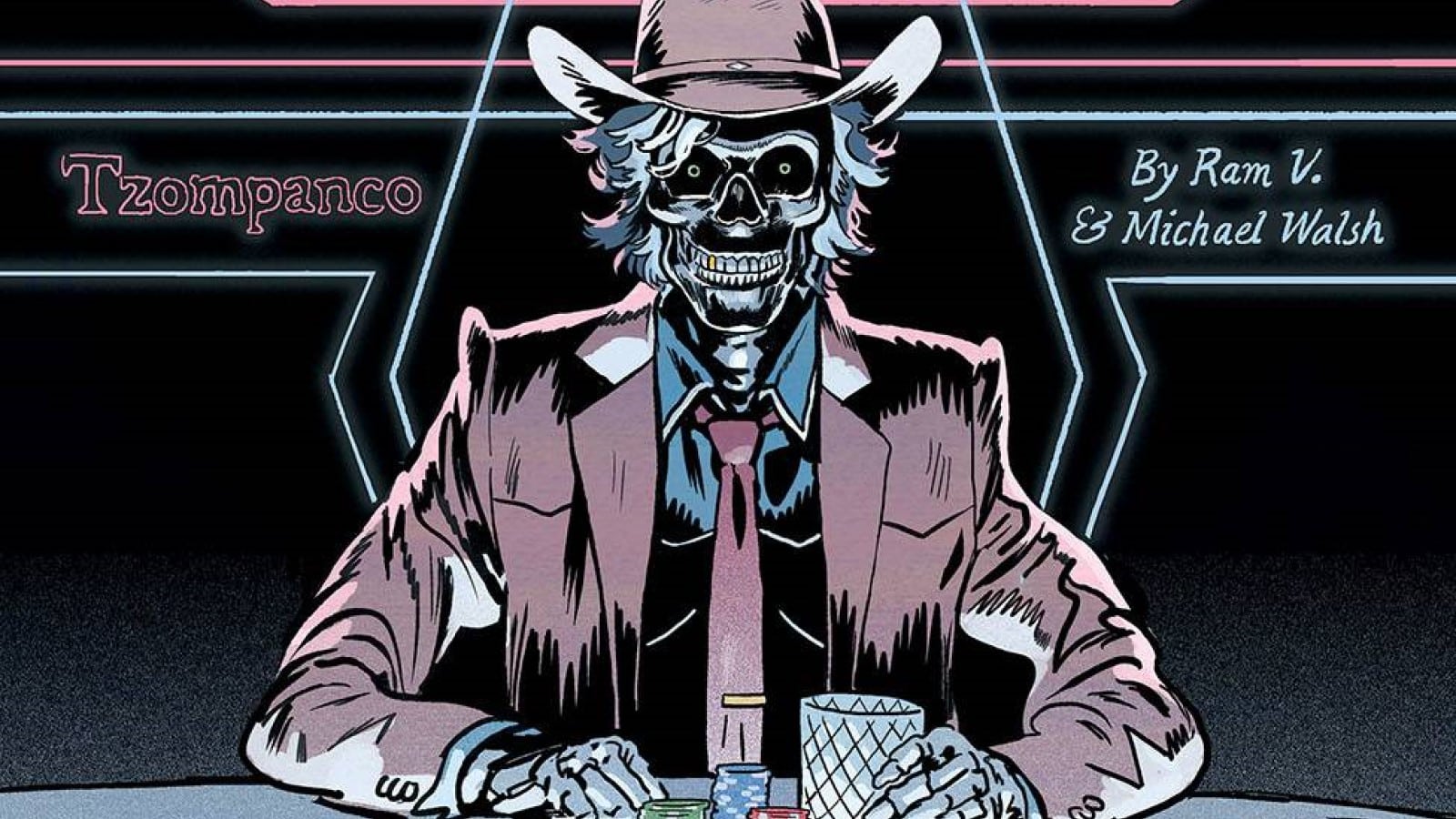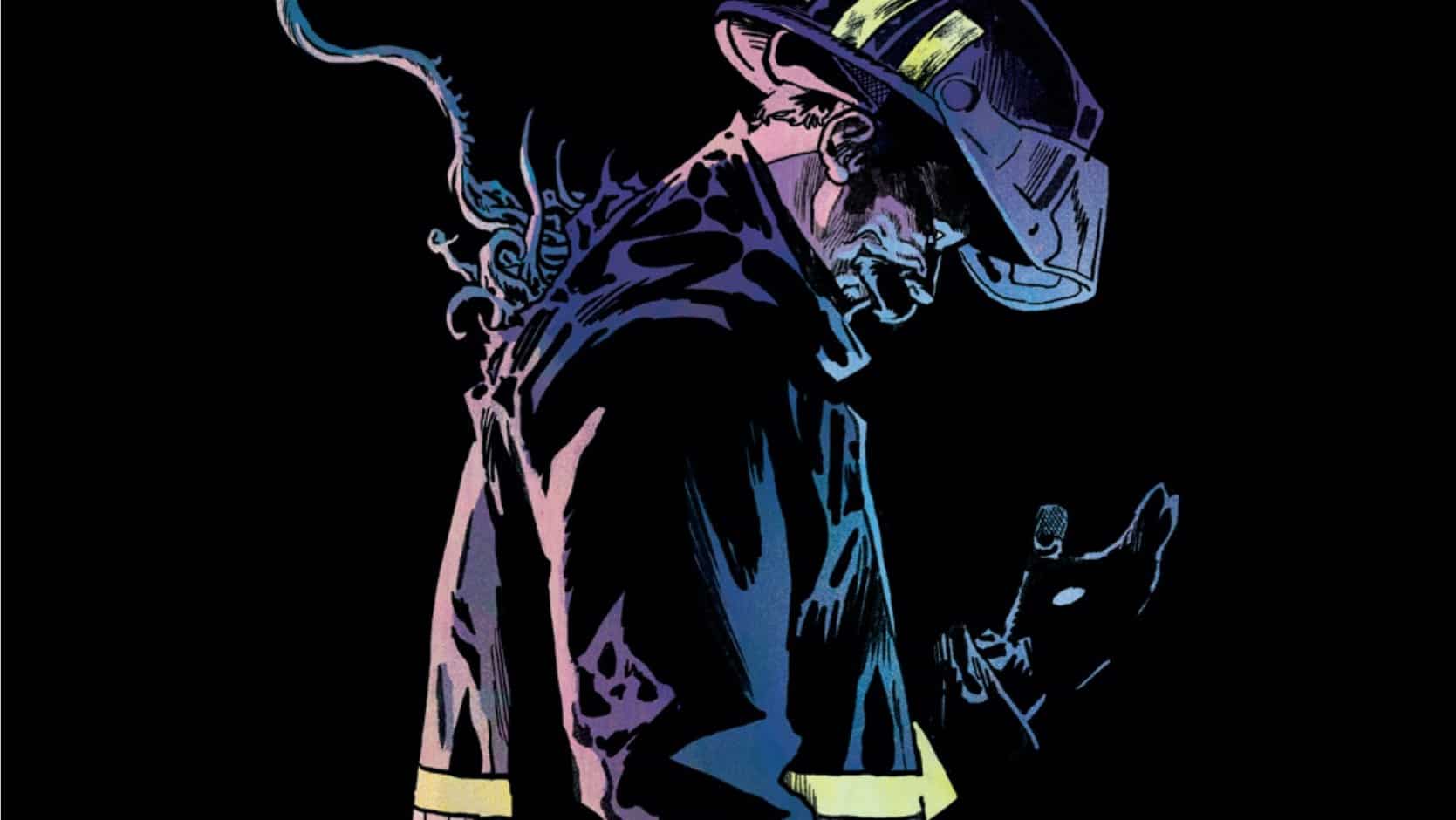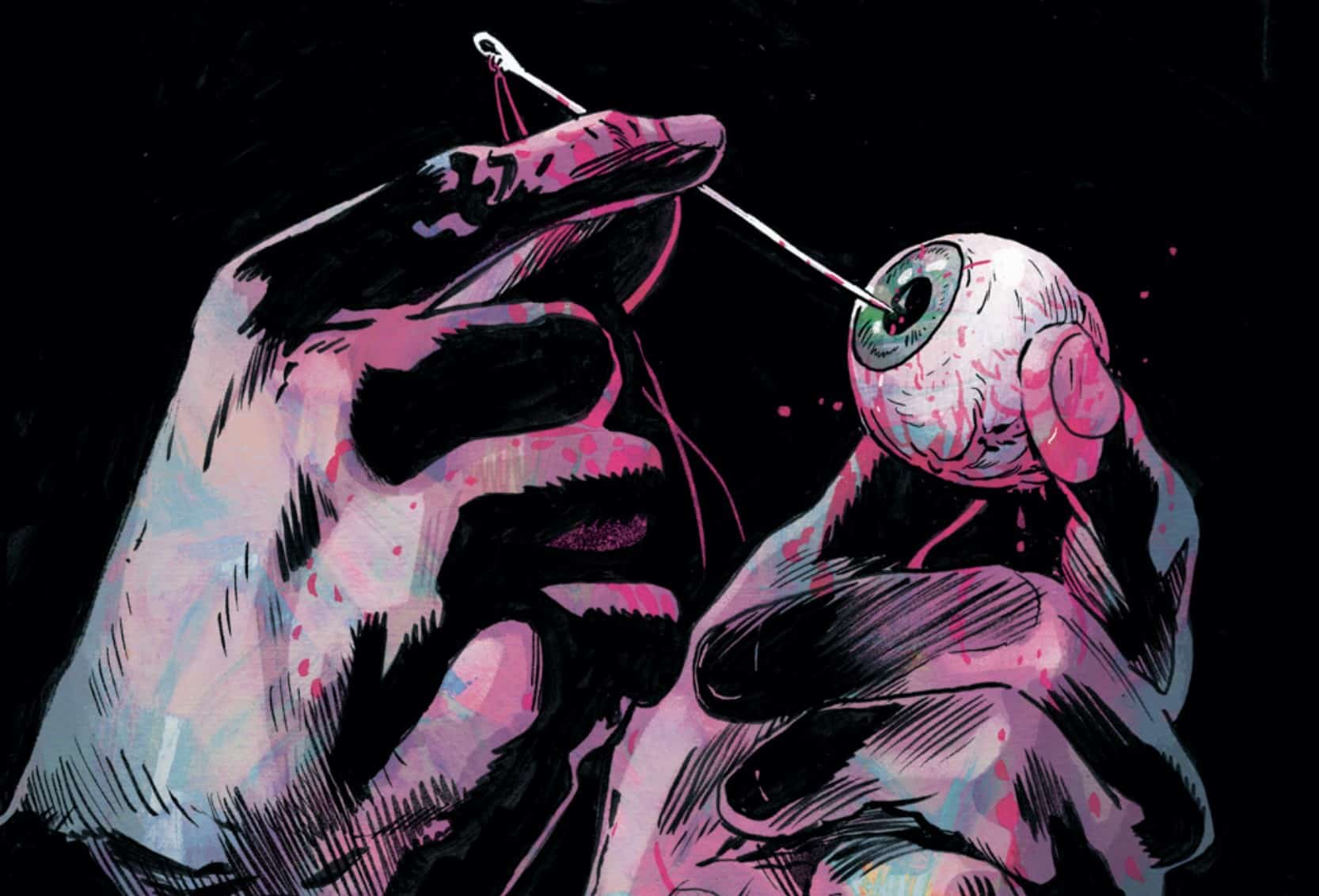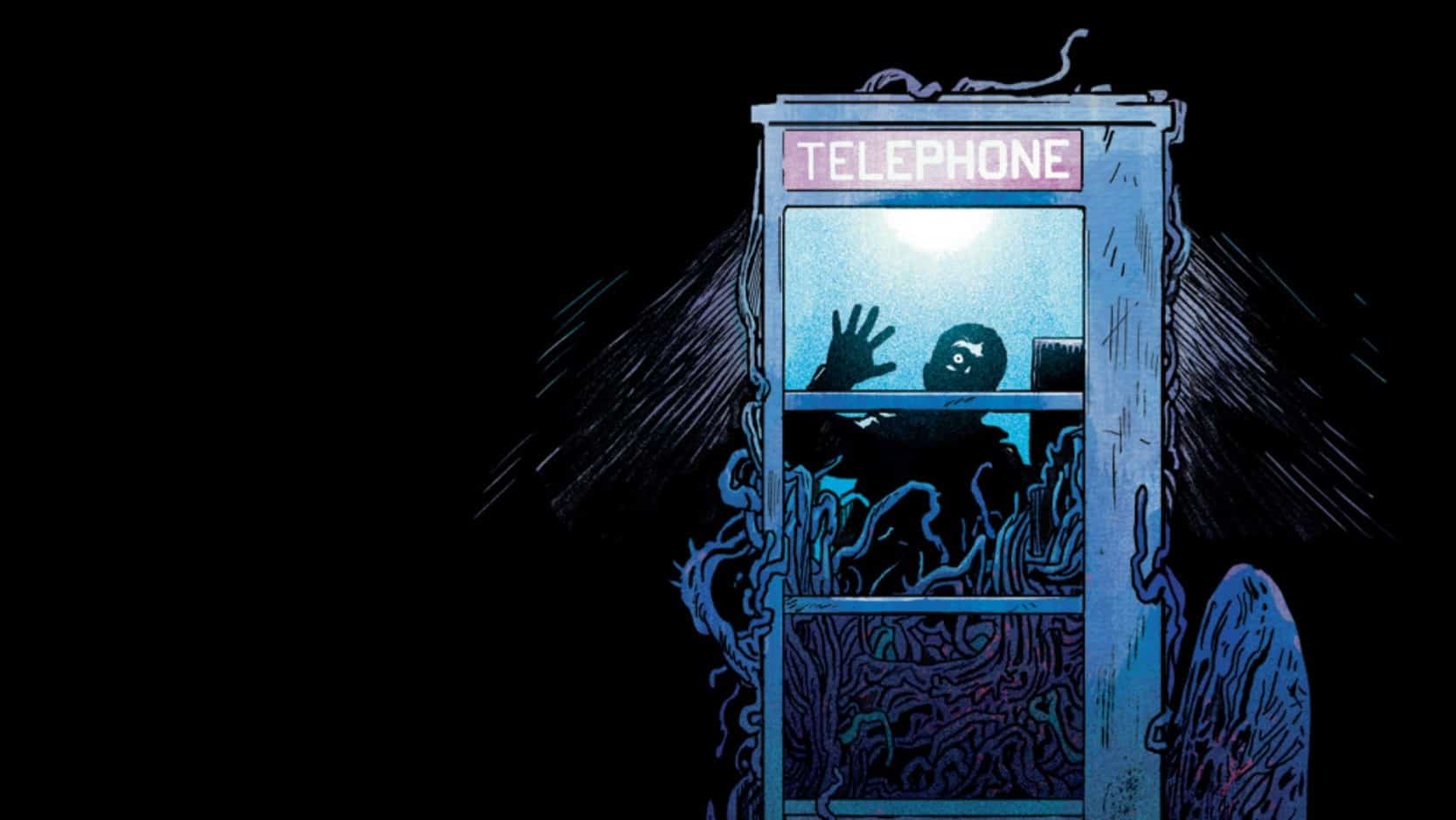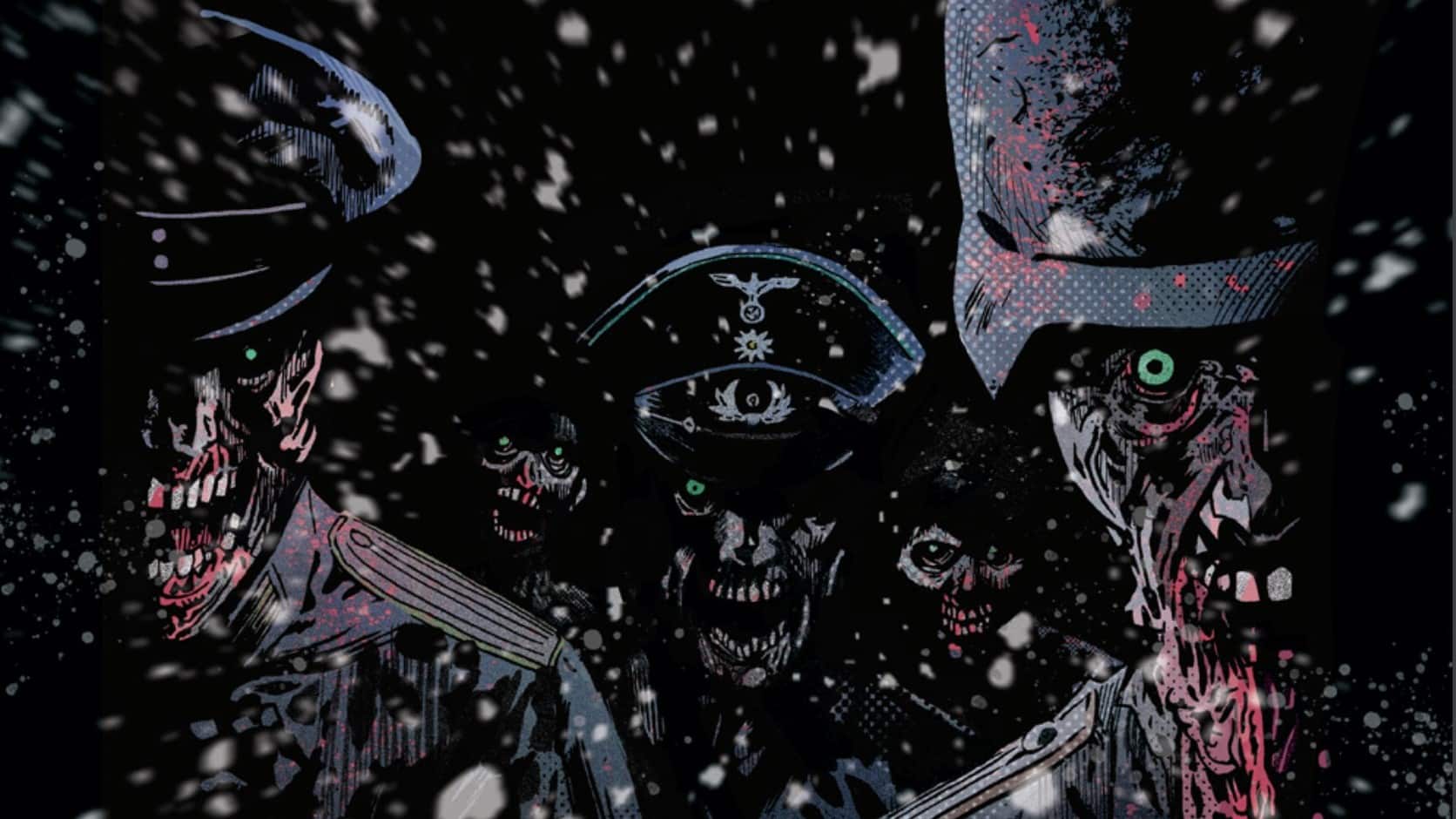For the first time in his life, Lou Prado is on a winning streak. Maybe it’s the new casino or maybe it’s the lucky coin in his pocket, but all of a sudden, Loser Lou’s bets can’t go wrong. He’s about to make the gamble of his life — and the stakes are deadly high atop the Tzompanco — in Image’s The Silver Coin #7, written by Ram V., drawn and lettered by Michael Walsh, and colored by Walsh and Toni Marie Griffin.
Mark Turetsky: Hey, Ritesh! Ready for a high-stakes game of comics review? Winner take all? Double or nothing? Uhh … let’s ante up and go for the gold (That’s not right, is it?)!
Ritesh Babu: I am! It’s a gambling issue! It’s a casino issue, and we all know how scary they are!
Mark: Nonsense! Modern casinos are banal, family-friendly attractions where nothing ever goes wrong. So, what did you think of your second issue of The Silver Coin?
On A Roll
Ritesh: It is my second issue, but I can also safely say it is the best issue I’ve read of this book? It’s certainly in a class higher than the previous one for me. Wherein that was a ’90s arcade scene horror story, this is a sort of rhythmically striking terror tale about capitalistic greed and excess, steeped in mythic strands. It rules. How’d it play for you?
Mark: As someone who’s read them all, I’ve gotta say, this one stands apart from the others. Mostly, they’ve been fun/horrific genre exercises, but this one seems to be working on a whole ‘nother level. I loved it. As I wrote extensively on Usagi’s tea ritual issue for Shelfdust, I guess I really like comic-books-as-rituals. Probably comes from reading Promethea at a formative age?
Ritesh: Haha, I can see that. But what’s interesting to me is how it takes something so common, so mundane, so part of our culture and everyday world — and exposes it as such. It is a ritual. All of this is ritualistic. But what for? That is the question the issue explores, and the answer is … gruesome.
Mark: So, let’s start with the title, “Tzompanco.” It’s a Nahuatl word, and it means “string of scalps.” Not exactly the most comforting name for a casino, but then again, the name is also used (Well, “Zumpango” is) for a municipality in modern Mexico, and I guess the people who live there don’t mind it.
Ritesh: There’s that, but there’s also the open discussion of conquest and colonization. And more importantly, the tie between the two. The evocation of Cortez and his conquest of Mexico feels striking, as does the colonizing perspective offered and the nature of its conclusions. The “why” there, that feels monumental to me. The idea that the rituals and practices of the Indigenous people were only “savage” and “abhorrent” because they were open and honest about their nature, without any pretense. But colonization, and its blood relative capitalism, love their pretense and veneer of “decorum” and “dignity” and “civility.” The code of betterment, a better life, a greater future being offered to all, when the nature of it is so evident. And thus we arrive at the gambling hellhole of the casino, a monument to capitalist excess.
‘Where Big Things Happen’
Mark: And not just that: Vegas is, as The Man puts it in this issue, a “replica town.” It borrows cultural landmarks from other places and turns them into playgrounds. I should point out that there’s nothing more authentic about the Tzompanco in Las Vegas than any of the other casinos. The site of Las Vegas today is pretty far from the Aztec Empire, which didn’t reach beyond the northern borders of what is now Mexico.
But The Man here, using the Silver Coin, refigures the act of gambling (You’re up, and then you’re as down as you can get) and puts it into the context of this human sacrifice ritual. Usually, the ups and downs of the gambler only serve the individual. But over the course of the issue, it becomes a ritual for the greater good. It’s to keep the sun in the sky.
But it’s lacking in some of that openness you talk about. Lou has no idea he’s going to be sacrificed. He just thinks he’s a winner, and that’s all the ritual needs from him. He goes to the top of the casino willingly, but he doesn’t do it fully knowing what is going to happen to him. But maybe some part of him knows what the coin flip is for. And The Man sacrifices him out in the open, for anyone on the strip to see.
Ritesh: The idea of gambling away your entire future to keep climbing and climbing, rising floor after floor, until you’ve hit the top, wherein all that awaits you is no reward but brutal, empty death … just, my god, what a beautiful metaphor for capitalism. I love that moment wherein he calls his partner, who’s working at her job, and he promises to be back with her, and it’s just profoundly sad. It feels like that was perhaps his only real connection, and he’s wrecked it by doing this, by setting out on this journey, as no life awaits him after it. He doesn’t even know it. He can’t even see it. He’s just drowning in the hedonistic excess of it all. The price one pays for that ascension and that rise … it’s bloody and brutal, and by god does it land.
Mark: It’s funny: Before he made that call on his smartphone, I had assumed this story took place at some point in the past. There’s a kind of feeling to Vegas that it’s preserved in amber. And I think the reason they have him on a smartphone and not just using the hotel phone is that it gets him out on the balcony, and the cracked screen tells us something about his financial situation outside of his win streak. It’s also really sad that his call with Deb comes on the heels of his orgy. She’s his connection to the outside world, to his life outside this casino, and he’s still got romantic notions that he’s winning it all for the two of them. The toughs at the casino removed his friend Nico, who fronted him the money in the first place, so this cracked little phone is his only remaining connection to his life.
Ritesh: Yeah. He’s quite deluded in his conception of not only what this is, but what he’s doing it for. He thinks he knows why. He believes he understands why. He feels he is perfectly in control. And yet he is not. He does not know why. Well, I believe he does, deep down, but not in a conscious way that he’d ever admit. Thus the justifications. It’s incredibly depressing, but there’s a truth there, buried in that. His split from his friend was just the beginning. What stems from insecurity and greed morphs into a dangerous addiction that then devours this man completely. If only he’d stopped at some point. If only he’d realized he didn’t have to keep climbing, that he could just let that go and get his priorities right. Whether it be mending his friendship with Nico or spending time with his partner. And yet … here he is. At the Tzompanco.
The House Always Wins
Mark: Just to circle back to your point about capitalism, this whole story reminds me of the shitshow of a pandemic we’re currently living through. I was just thinking about the openness of the blood sacrifice, and the need that our economies have had to keep “essential” businesses running, ignoring the safety of employees, promoting the spread of a disease that continues to kill thousands. I’d heard the human sacrifice comparison made before, but there it is, laid out right before us.
Ritesh: Yeah. But the pretense is still maintained, as propaganda and fake news are spread, and social justice language is co-opted to serve the structures and systems as they are. For all that they do this, they can never admit to its nature. There must always be the veneer of respectability and nobility amidst it all, the “Oh, we love you and care about you and always have!” mythologized into the narratives they weave for themselves.
Ram V’s work in general is deeply interested in the subject of capitalism and colonization, and it shows here. But I really love how it’s approached and presented in a different way here compared to his other works. It’s all so very clearly him, it’s distinctly his own voice. I cannot imagine this same issue from another collaborator, and that’s what this book should be doing and about: Walsh really getting to play around with such distinct collaborators to riff and make something cool in a new way each time around.
Mark: I’d like to talk about the final few pages. The Man, as I’ve been calling him, is revealed, as I think we could have guessed, to be an Aztec priest. He speaks to The Coin, referring to it as “Brother,” and says, “You’ll have to wait a while yet before we meet at the bloody end.”
Now, back in issue #5, we see how the coin gets cursed in the first place: a witch in colonial Massachusetts is being hanged, and she sees the coin in the hands of her friend, who’s betrayed her to a witchfinder, and the coin was part of her reward.
This issue implies that maybe that wasn’t really the origin of the Coin. That it’s not limited to European ideas of witchcraft. Maybe that it taps into universal forces found in all civilizations.
Earlier in this issue, The Man makes reference to “dear sweet Coyolxauhqui, who had been dismembered and laid upon the breast of Tenochtitlan.” Coyolxauhqui is the moon goddess of the Aztecs. In fact, according to their mythology, the moon is itself her severed head. Tenochtitlan is a god of war, the sun and human sacrifice. The sacrifice ritual is a reenactment of Coyolxauhqui’s sacrifice so that the sun would survive and continue to rise each morning.
So, in my reading at least, The Man is, in a certain way, opposed to The Coin. The Coin wants the bloody end of the world, to bring about the death of the sun and the age of darkness. But I think The Man also understands that they’re part of the same system, using The Coin to lure in potential people to sacrifice to keep the darkness at bay.
Ritesh: It’s an endless cycle, forever ongoing. And on that note, the final page and the first page, they play into that as well. We open on the casino machines, and they set up the entire venture for us. Them lining up and producing that DINGDINGDING is what kicks us off. And thus we end on them once more, understanding that this isn’t the first time this has occurred to someone, and it most certainly will not be the last. The wheel just keeps turning, the forces of the world continue to trudge along, and the blood must flow for it to be maintained.
Mark: Eventually, someone else will win The Coin and end up on the business end of that sacrificial knife.
Loose Change
- I couldn’t find anything about an architect named “Engels,” but perhaps this comic is referring to Bjarke Ingels. Almost certainly it’s not communist philosopher Friedrich Engels who built this casino.
- This issue is the closest to the present The Silver Coin has gotten.
- Next month, it’s Matt Rosenberg, the 1960s and the stock exchange. What could go wrong!

